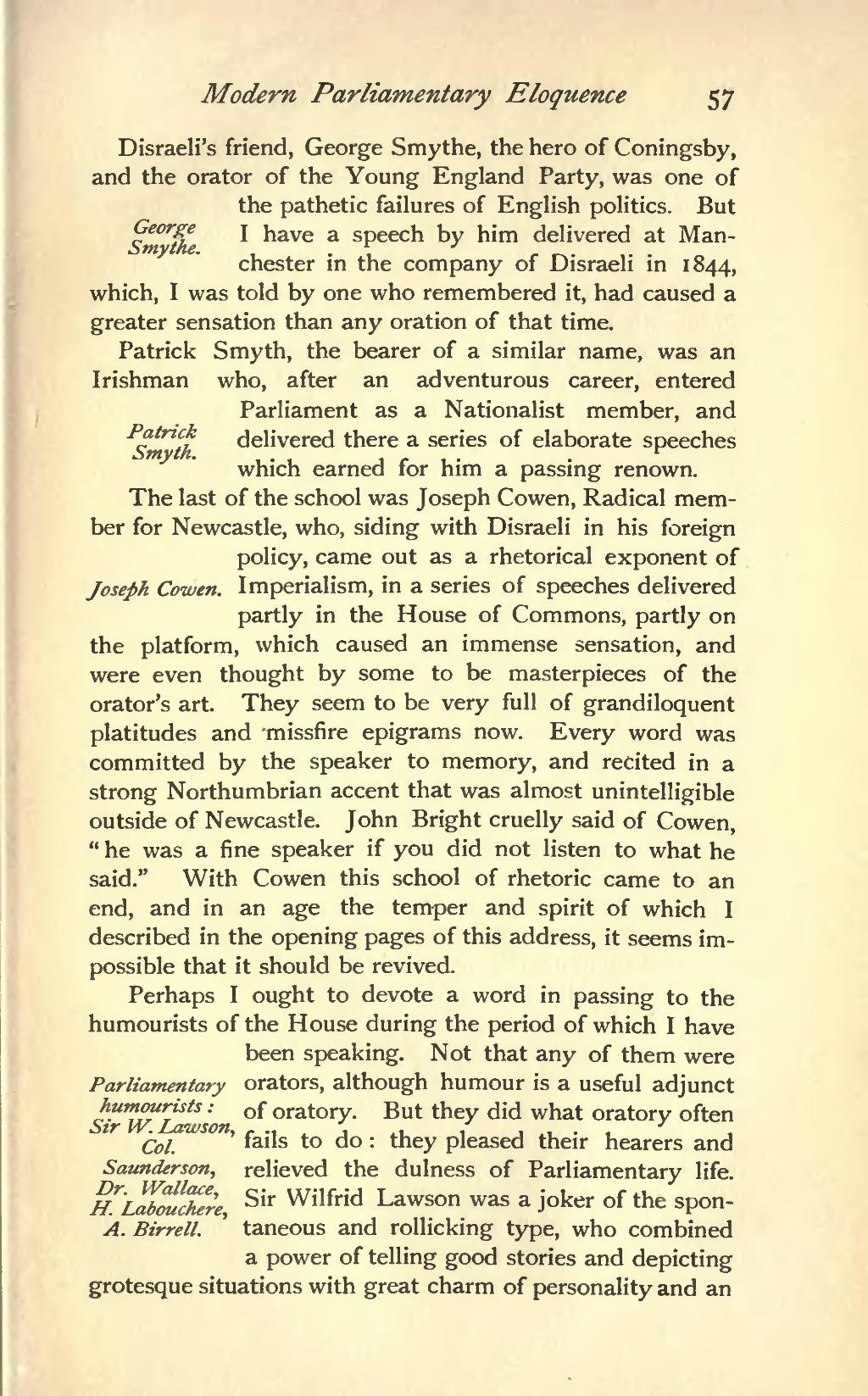George Smythe.Disraeli's friend, George Smythe, the hero of Coningsby, and the orator of the Young England Party, was one of the pathetic failures of English politics. But I have a speech by him delivered at Manchester in the company of Disraeli in 1844, which, I was told by one who remembered it, had caused a greater sensation than any oration of that time.
Patrick Smyth.Patrick Smyth, the bearer of a similar name, was an Irishman who, after an adventurous career, entered Parliament as a Nationalist member, and delivered there a series of elaborate speeches which earned for him a passing renown.
Joseph Cowen.The last of the school was Joseph Cowen, Radical member for Newcastle, who, siding with Disraeli in his foreign policy, came out as a rhetorical exponent of Imperialism, in a series of speeches delivered partly in the House of Commons, partly on the platform, which caused an immense sensation, and were even thought by some to be masterpieces of the orator's art They seem to be very full of grandiloquent platitudes and 'missfire epigrams now. Every word was committed by the speaker to memory, and recited in a strong Northumbrian accent that was almost unintelligible outside of Newcastle. John Bright cruelly said of Cowen, "he was a fine speaker if you did not listen to what he said." With Cowen this school of rhetoric came to an end, and in an age the temper and spirit of which I described in the opening pages of this address, it seems impossible that it should be revived.
Parliamentary
humourists:
Sir W. Lawson,
Col. Saunderson,
Dr. Wallace
H. Laouchere,
A. Birrell.Perhaps I ought to devote a word in passing to the humourists of the House during the period of which I have been speaking. Not that any of them were orators, although humour is a useful adjunct of oratory. But they did what oratory often fails to do: they pleased their hearers and relieved the dulness of Parliamentary life Sir Wilfrid Lawson was a joker of the spontaneous and rollicking type, who combined a power of telling good stories and depicting grotesque situations with great charm of personality and an
